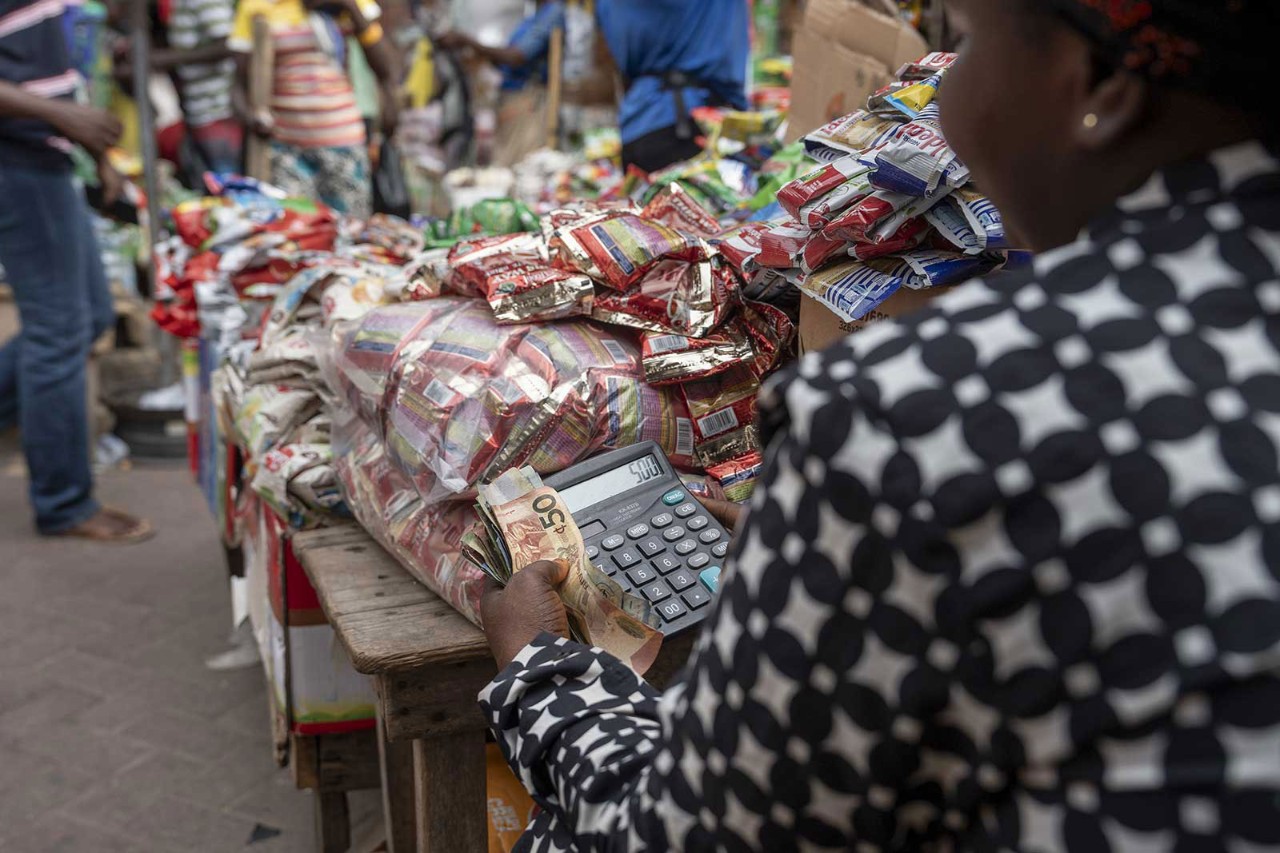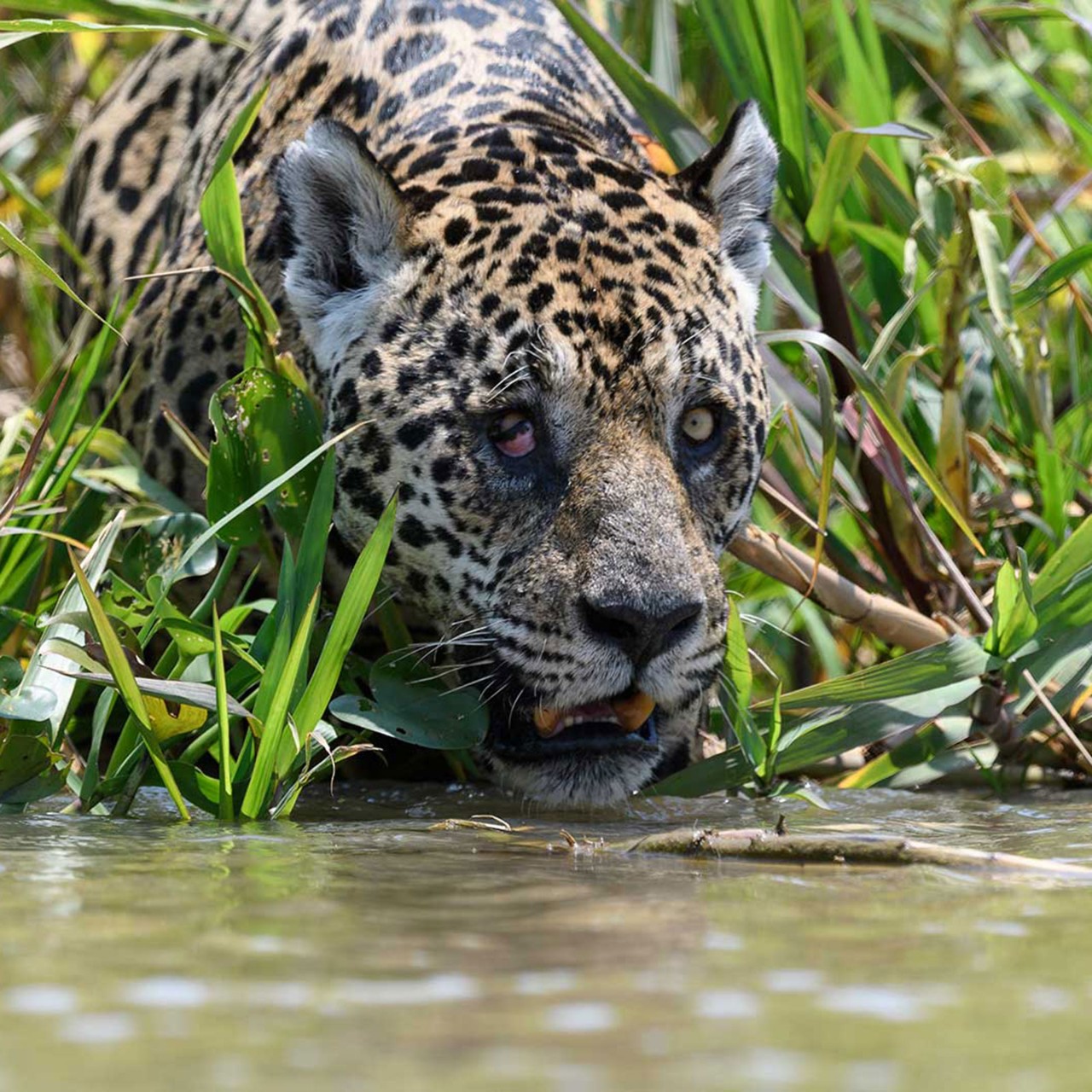
In 1967, just a year after Botswana gained independence, a huge diamond kimberlite pipe – a seam of volcanic rock that pushes rough diamonds close to the earth’s surface – was discovered about 250 miles from the capital Gaborone.
It was a game-changer for the country. Diamond production now accounts for over 90% of exports and a third of government revenue, and has lifted what was one of the world’s poorest countries into a top five ranking in Africa for GDP per capita. As Festus Mogae, Botswana’s president between 1998 and 2008, put it: ‘Every diamond purchased represents food on the table, better living conditions, better healthcare, potable and safe drinking water, more roads to connect remote communities.’
‘What I love about diamonds is that Botswana benefits so much from them’

It is a truth proclaimed by Susanne Swaniker-Tettey FCCA, who recently became global financial controller at De Beers Group, based in the UK. The company is 15% owned by the Botswana government (the other 85% is owned by multinational mining company Anglo American), and both parties are 50/50 shareholders in Debswana, which dominates diamond production in Botswana. Susanne says: ‘What I really love about diamonds is that Botswana benefits so much from them. They are the backbone of the economy. And for me, working in this industry has been incredible. It has opened so many doors for me, from a corporate and personal perspective.’
Despite Anglo American’s recent announcement of its intention to sell off its diamond business as part of a major restructuring, Susanne is optimistic about the future too. ‘Any announcement of this sort is unsettling but as a finance professional, no matter what happens, there will be a lot of work to come which could potentially be career defining, so this is a great time to be in such a role,’ she says.
Sold on sight
Susanne spent the first few months of this year moving across from her role as CFO of De Beers’ Diamond Trading Company and Global Sightholder Sales in Gaborone to her new position. The new role, whilst focusing on financial reporting for the entire group, will also oversee compliance and the diamond risk management.
‘I’m excited to be involved with driving the compliance and risk management processes from a group perspective,’ she says. ‘In the diamond industry we must always be prepared for the unexpected, including sudden sharp swings in markets and the economy. Having good risk management processes helps me do that.’
Sightholder sales involve groups of authorised bulk buyers from around the world collecting together at so-called ‘sights’ (in Botswana, Namibia and South Africa) every five weeks to inspect and buy rough diamonds.
‘We go to the weddings of our customers and they tell us when their children are born’
The sightholders, says Susanne, are very much like a family. ‘This industry is all about relationships, and they go very deep. Our sightholders are often family businesses that have run on trust for generations, and their relationship with us is very important. For years, there was no legal process or documentation around diamond sales – your word was your honour. Things have changed over the years, but the relationships still count. We go the weddings of our customers and they tell us when their children are born.’
She says she will miss the support of sightholders in her new role but is determined to remain focused on the importance of relationships in business. ‘One of my priorities in my new role is to bridge gaps in the organisation,’ she says. ‘At group level, you don’t get to see what people are doing on the ground in the business units. I want to help people understand that there is a lot going on on all sides of the business and bridge the gap between the group, its corporate entities and the country entities.’
CV
2024
Global financial controller, De Beers Group, UK
2018
CFO, Global Sightholder Sales, De Beers Diamond Trading, Botswana
2013
CFO, Okavango Diamond Company
2011
CFO, Boteti Mining
2007
Finance manager, then commercial manager, Tati Nickel Mining Company
2004
Finance manager, BCL (copper mining)
1994
Audit trainee, Deloitte Ghana, then audit manager, Deloitte Botswana
Exam bet
Born in Ghana, but raised and schooled in Zimbabwe and Botswana, Susanne has had to work hard to reach the top levels of industry. At the age of 19, deciding she’d rather train with a Big Four audit team than go to university, she turned up at Deloitte’s offices in the Ghanaian capital Accra armed with her CV, a bookkeeping diploma and the name of a partner. ‘The partner told me they only took graduates, but I was not put off. I told him and the HR director that if they took me on and I didn’t pass my ACCA exams in two years I would pay each of them US$100. But if I did pass, they had to pay me US$100. They hired me, and the partners duly paid me my US$100 when I relocated back to Botswana to continue my career.’
The ACCA qualification, which Susanne completed after moving to Deloitte’s Botswana office, has proved invaluable. ‘It has been amazing because it has allowed me to move around, to do what I want to do, using accounting as a base,’ she says. At the time, ACCA was the only option in Botswana; the Botswana Institute of Chartered Accountants (BICA) was only established in 1990 and its qualification was not introduced until 2010. Susanne has since become the most active of BICA members and is coming to the end of a two-year term as its president.
‘The industry struggled with Covid because people weren’t dating as much’
Demand picks up
Last year was a mixed one for the diamond sector. While the diamond industry bounced back quickly in the months after the pandemic, both demand and prices slowed sharply at the beginning of 2023. While some diamond producers have cut back on production – and India, which cuts and polishes 90% of the world’s rough diamonds, paused imports for two months – De Beers initially kept to its planned 2023 production target of between 30 and 33 million carats as it was confident that demand would return.
Susanne says: ‘The industry struggled with the impact of Covid because people weren’t dating as much. Because of that, there was a lull in weddings, but that’s beginning to pick up again.’
A dip in the diamond sector has a sizeable impact on Botswana – its economy was expected to grow by just 3.8% in 2023 compared with 5.8% in 2022 because of lower demand – but its government and De Beers recently negotiated a new 10-year sales contract and a 25-year mining licence for Debswana that should help fund Botswana’s long-term diversification plans. Diamonds may not be forever, but they will benefit Botswana for a long time to come.
De Beers and wildlife conservation
120+
Years managing nature reserves around its operations
500,000
Acres protected across southern Africa as part of the Diamond Route conservation programme
1m
Number of people who will benefit from water and food security through De Beers’ sustainability project in the Okavango Basin, Botswana
6:1
Ratio of acres managed for conservation to land used for mining
200
Elephants moved from De Beers’ reserve in South Africa, where there are too many, to rewild a national park in Mozambique



